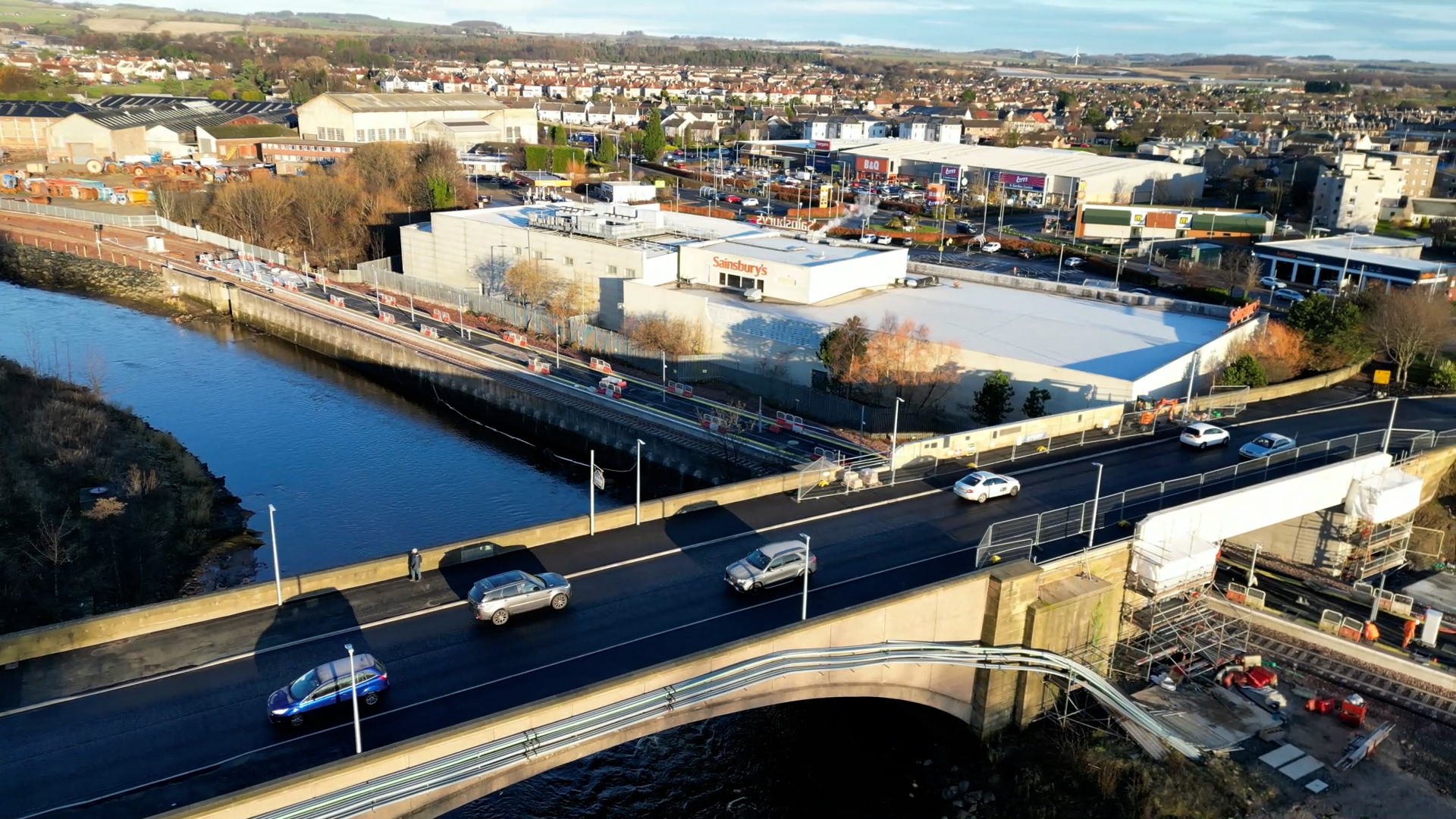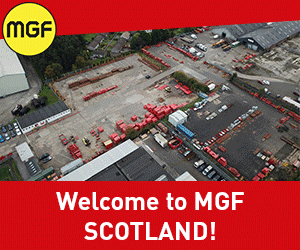Bawbee Bridge re-opens earlier than planned

The new Bawbee bridge officially opened to traffic last week, earlier than had been planned.
Work to replace the structure, which was weight-restricted and at the end of its lifespan, was funded by Fife Council and delivered by Network Rail as part of the wider Levenmouth Rail Link project.
During the demolition of the original bridge, a temporary road bridge was in place to carry around 18,000 vehicle movements per day and minimise disruption.


With the new Bawbee bridge in place, the temporary road bridge will be removed and work will continue to create the car park for the new Leven station.
It’s a significant piece of work, with the new structure boasts 7,000 tonnes of stone and 100 tonnes of steel reinforcement.
Sean Clemie, project manager for the bridge works, said: “It’s fantastic to see the new Bawbee bridge open and to see vehicles cross the new structure.
“Bridge demolitions in themselves are often straight forward enough, but most carry numerous utilities over railways and rivers. The challenge is to deliver a programme to have services diverted to a temporary structure and then reconnected over the permanent structure. This is what takes the time.


“Getting this structure over the line is a huge milestone and it allows us to progress with the station carpark and to aim to get everything ready for the opening of the new rail link next year.”
Councillor Colin Davidson, of Fife Council’s Levenmouth Area Committee, said: “I am delighted to see the Bawbee Bridge open to traffic and especially delighted that the contractors were able to really push ahead and open it ahead of schedule. “
“The new bridge is looking fantastic, and I’m pleased to see we have kept some of the original bridge in there with the internal stonework.


“This is a significant improvement to our local road network and I want to thank the local residents and business community for all their patience. It has been a challenging and complex project, but one which will undoubtedly benefit the area going forward.”
Construction of the bridge saw sixteen 18m-long reinforced concrete beams and 18 precast concrete parapets, each weighing 7.5 tonnes craned into place. In addition, 770 cubic metres of concrete was also poured as part of work to create the bridge.
Sandstone from the original structure has been used on the new bridge to create the internal facings.



